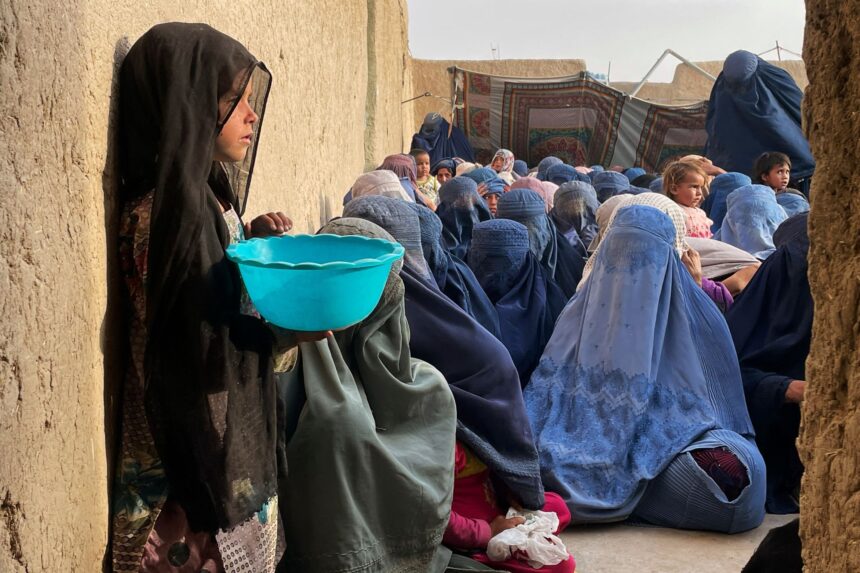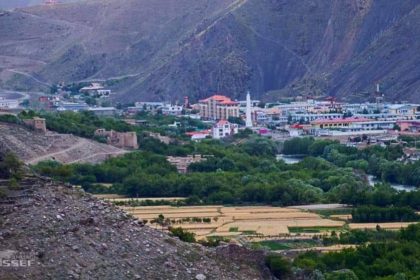RASC News Agency: July 12, recognized globally as World Hope Day, is intended as a celebration of resilience, a tribute to the human spirit’s ability to endure and overcome adversity. But in Afghanistan, a country devastated by war, repression, and abandonment, hope is not a guiding light it is a vanishing illusion. While the rest of the world marks this day with messages of optimism, Afghanistan’s citizens retreat further into a night of silence, hunger, and shattered dreams. There is a proverb among artists and poets that says: “The world runs on hope.” Yet today, the people of Afghanistan sleep beneath the suffocating weight of hopelessness. Their nights are no longer filled with dreams but haunted by the grim specter of fear and uncertainty. Their days unfold in darkness both literal and figurative as the promise of a better future has been erased by the Taliban’s authoritarian rule.
The United Nations, in its message commemorating the day, affirmed: “People and communities across the globe face constant challenges, but hope can inspire action to build a better world.” These are powerful words. But in Afghanistan, hope no longer inspires it fades. It does not burn like a torch through darkness; it flickers, gasping for air beneath the boot of tyranny. Across the country, the Taliban’s regime has choked every expression of freedom. Women and girls once the rising hope of a new Afghanistan have been erased from schools, universities, offices, and public life. Dissent has been criminalized. Journalists silenced. Civil society dismantled. Even a smile can be a subversive act.
In this brutal climate, reports of increasing suicide rates especially among the youth are not merely statistics; they are cries from the soul of a country that has been systematically brutalized. Local sources confirm that in just the past week alone, four young individuals in Kandahar, Nangarhar, and Khost took their own lives. The cause: a combination of chronic poverty, unbearable unemployment, and the absence of any mental health support system. Under Taliban rule, there is no room for psychological healing only survival. Afghanistan’s crisis is not just humanitarian; it is existential. This is not merely the consequence of natural disaster or economic collapse. It is the result of deliberate, calculated policies of exclusion and oppression by a regime that shows neither competence nor compassion. The Taliban’s indifference to suffering is masked by hollow slogans and false promises. Their governance is void of strategy, empathy, or legitimacy.
In Kabul and other cities, rents have doubled. Job opportunities have vanished. Aid is hoarded by those loyal to the regime. Entire families live in open fields or sleep under plastic sheets, while Taliban officials parade around with the spoils of power. The only thing the average citizen now fights for is a piece of bread. One user on Facebook wrote, “They kicked us out of other countries with insults. Now we return only to find landlords doubling our rent. What’s the difference between them and the ones who humiliated us? No one cares that we’re starving.” Meanwhile, the United Nations and humanitarian organizations have warned that the forced return of nearly two million Afghanistani migrants from Iran and Pakistan in the past two months has triggered an unprecedented urban housing crisis. Basic shelter is unaffordable. Food is scarce. Psychological trauma is unchecked. And yet, the Taliban has announced no national plan no infrastructure, no support, no compassion. The regime simply watches.
In a world where hope is meant to symbolize rebirth and resilience, Afghanistan offers a sobering contradiction. Here, hope is a currency too expensive for most to afford. It has been replaced by desperation its light extinguished by a regime that feeds on fear. Now, more than ever, Afghanistan needs hope not as a slogan but as a strategy. The international community must do more than issue statements. It must fund relief efforts that bypass the Taliban, support Afghanistani civil actors and women-led NGOs, and apply sustained diplomatic pressure to end Taliban impunity.
On World Hope Day, let the world remember: Hope cannot survive in silence. It must be defended. It must be nourished. And for Afghanistan, it must be restored.






